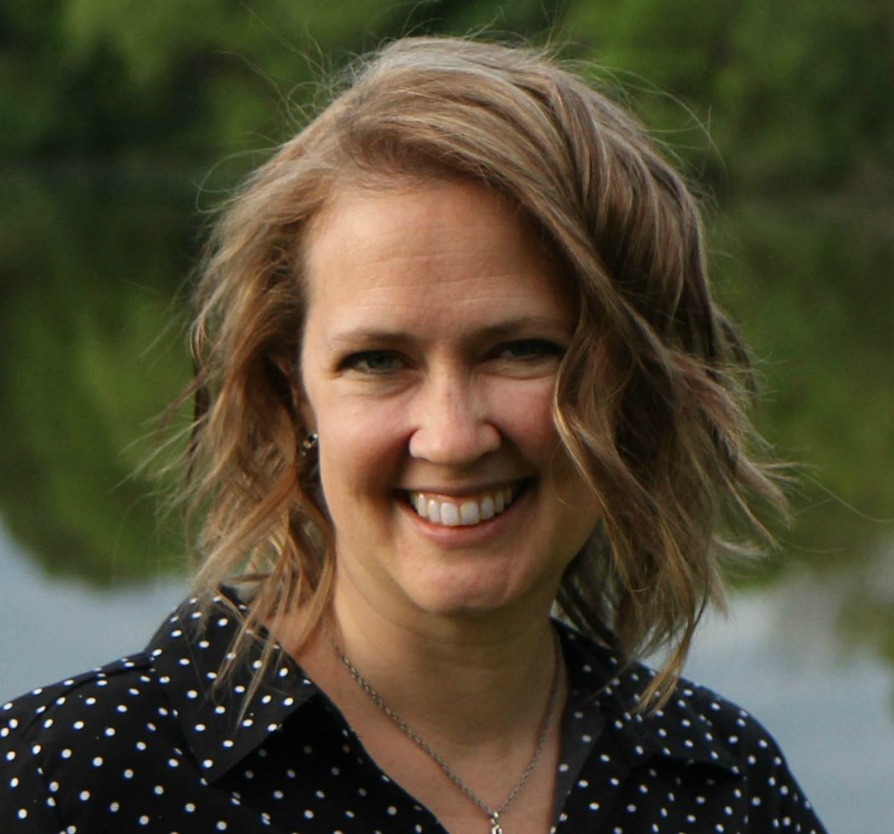
After years of over-serving, which included running various ministries, then fostering and caring for up to twelve children at a time, I wrestled with signs of PTSD, acute anxiety, and depression. With my ability to live well severely disrupted, I was unable to handle loud noises, interruptions, and other people’s expectations. Even facial expressions and tones ignited tension inside me.
My startle reflex prompted instinctual actions. Like yelling. Clenching my fist. And panicky breathing. Then, finding somewhere to hide and get cozy.
Stress and trauma wired my body to be highly reactive instead of thoughtfully responsive. I struggled to not feel anxious as my body felt ready to explode. Even when circumstances changed and I no longer needed to stay on high alert for possible danger, my brain was trained to protect me.
To recover, I chose a path of healing. I learned to set limits that honored my needs by saying no to what wasn’t critical. It wasn’t easy to know what to say yes and no to, so I moved forward with readiness to change direction if God led.
Choosing to care for myself was challenging because I’d lived afraid of being seen as selfish. When I stopped giving out of what I didn’t have, I wrestled with knowing what was selfish and what was healthy self-protection.
Photo Credit: Pixabay

Trauma Influences Self-Protection
Trauma impacts many of us, though we may not realize it. Despite what I used to think, trauma is not limited to having your life threatened or enduring significant physical or sexual abuse. It happens when deeply distressing events overload our brains, which includes far more scenarios.
Even events referred to as little “t” trauma wire in unhealthy beliefs and affect our ability to live wholly healthy. They build up in our bodies unless we experience healing.
Imagine crossing a street. An erratic car heads your way, honking repeatedly. You react quickly by getting out of the way because your brain is wired to seek safety. In this situation, self-protection is necessary.
However, these experiences can leave imprints that tell us danger is present when it isn’t. We associate sounds, smells, and images to memories of previous fear triggers without being aware of it.
These memories trigger quick reactions. Hearing similar sounds can prompt a sudden increase in heart rate, distractibility, and irritability. What was once a helpful response, because danger was present, can be problematic later.
Our traumatic experiences create self-protective patterns.
Photo Credit: Getty Images

Unhealthy Attachments Fuel Self-Protection
Besides trauma, we learn self-protective ways of coping through a lack of healthy attachment early in life. When a caregiver doesn’t provide nurturing emotional support and physical care, we learn unhealthy ways of responding to life’s challenges.
This can look like avoiding pain, pushing others away, control, clinginess, shifting blame, addictions, and a lack of personal responsibility. We will use self-protective measures to deny we have needs, or get our needs met in unhealthy ways.
Unfortunately, many believers are prone to ignore the signs of trauma and broken attachments by assigning selfishness as a motive rather than self-protection. By doing so, the focus becomes what we’re doing wrong and how to fix it, rather than healing, which is a deeper process. Ignoring underlying issues limits our ability to see God’s redemptive work in our lives.
Though our actions and words may be selfish, and we are still responsible for them, we need a broader understanding if we want to experience a humble, changed life. A more nuanced approach helps us build connections that foster growth.
Photo Credit: Getty Images/Ridofranz

Identifying Healthy and Unhealthy Self-Protection
We are all prone to protect ourselves in ways that are healthy and unhealthy. It’s important to keep this in mind. Self-protection has a purpose, but it never excuses harmful behavior. Like many things God designed as good, the enemy distorts.
Healthy self-protection leads to healthy living, which provides a strong foundation for connection with others and God. It’s a response that helps us steward our lives and relationships.
Unhealthy self-protection leads to unhealthy living, which breaks down relationships and our ability to connect. When focused on ourselves, we cannot experience God’s protection through other means. We become the source of our lives, instead of God.
Consider David in I Samuel 23:1-14. God approved of his plan to protect the city of Keilah from the Philistines. After David’s victory, King Saul sought to kill him. David and his 600 men fled and hid in the wilderness.
His self-protective act of hiding was not prompted by frantic fear, but wisdom and stewardship of life.
Later, in 2 Samuel:11, David (now king) took Bathsheba (the wife of one of his soldiers) and used his position to rape her. She became pregnant. To hide what he did (save himself), he had her husband Uriah strategically placed in a battle where he would die.
David’s motivations were all about covering up his wrong and getting what he wanted. It had nothing to do with promoting healthy relationships or responding to God’s guidance.
Photo Credit: Getty Images

When it’s Simply Self-Protection
Self-protection is needed and helpful when it fosters safety and healing.
However, when self-protection is a form of relying on self over God, it damages our ability to experience God and enjoy the life and relationships He gives us.
It’s not always easy to know the difference, but by noticing ways we self-protect, we can recognize where healing and growth need to happen. We make room to trust the One who’s protection we need most.
Sometimes we need to take active steps to protect ourselves, like ducking from a flying object. Or removing yourself from a conversation that is destructive. Or saying no when someone expects something from you you’re not OK giving. This includes not allowing others to treat you in destructive or manipulate ways, recognizing when you need time to rest, and choosing to set limits on how much you give.
Some acts that seem selfish may be situationaly appropriate self-protection.
Jesus often walked away when another person was harmful or unwilling to see beyond themselves. He set limits on how much time he spent teaching, being with the crowds, and answering questions.
Photo Credit: Getty Images

When Self-Protection Looks Selfish
Self-protection gets confused with selfishness when setting healthy boundaries.
Know the difference by paying attention to your body and soul needs while remaining responsive to God’s guidance. Learn to set healthy limits for what you will and won’t do, which protect your ability to pour out another day.
Say you’ve been running errands and helping a friend all week. You’re tired. Just as you sit down to rest for the few unplanned hours you have, the phone rings. It’s one more request to do something for someone. You’re exhausted and the only reason you would say yes is because you’d feel guilty if you didn’t. This time, you say no. You are honest with your limitations. The other person sees it as selfish, because they are used to taking more than you have to give.
Or a new friend asks you to dinner. You’re torn about whether to say yes. Without being aware of the reason, you feel uneasy. There may be something about them triggering memories of another person who harmed you. It could be you’re believing lies about who you are and your safety. Which is it?
You choose to self-protect by staying home. Is it selfish? Only you can explore with God whether you made a wise decision, or one based out of fear. Pay attention to the discomfort you feel and ask God to speak to it. Write out what you notice. (Unleash Sheets are especially helpful here.)
Photo Credit: Getty Images/Weedezign

Keys to Distinguishing Selfishness versus Self-Protection
What looks selfish may be self-protective acts fueled by previous experiences. Some methods were good when first needed but are now causing damage instead of helping.
It takes awareness, attention, new experiences, caring community, and sometimes professional therapy for our bodies to react in new ways.
We can’t clearly define where self-protection ends, and self-focus begins. We need the Holy Spirit to help us discern. If we’re willing to listen, the Spirit brings awareness and guidance.
Are we stewarding life or contributing towards a self-sourced life, absent of trusting God?
To distinguish between what’s healthy and not, consider asking to God to reveal:
- self-protection that’s healthy and necessary to fuel healthy connections with others
- self-protective ways that lead to disconnection and even harm
- motivations to give beyond what’s comfortable because God is guiding you
- motivations to serve self over trusting God and caring for others
Ultimately, only God knows our motivations and needs. He is the one who reveals self-protective measures that are appropriate, ones that require healing, and ones that need to be relinquished.
God is willing to reveal what our hearts need most. He invites us to go beyond instinctive needs so we can experience lifelong provision by our greatest protector.
Jolene Underwood is an emotional health warrior and soul care mentor. She provides practical and spiritual support for cultivating life within the Christian soul by drawing upon her personal journey towards emotional health, her psychology background, and a passion for Christian counseling. Jolene writes regularly at JoleneUnderwood.com. She also leads a community of writers called Rise Up Writers. Her tool, Unleash : Heart and Soul Care Sheets, has helped hundreds experience greater freedom. Connect with her online via YouTube/Facebook/Twitter/Instagram/Pinterest at @theJoleneU or via the Cultivated Life Newsletter.
Photo Credit: Getty Images/Antonio Guillem
Originally published Wednesday, 04 December 2019.










